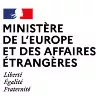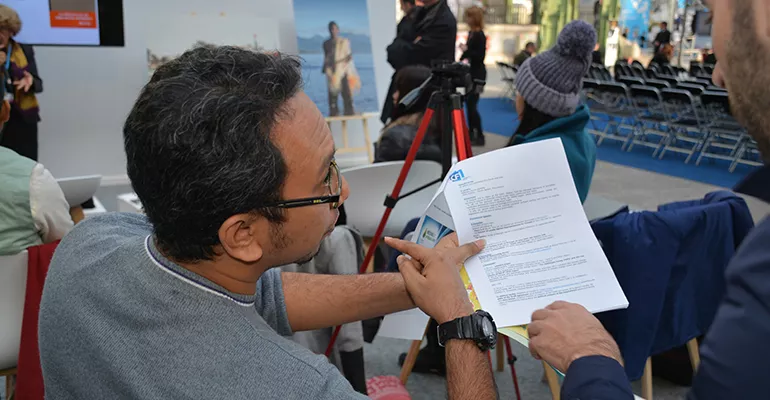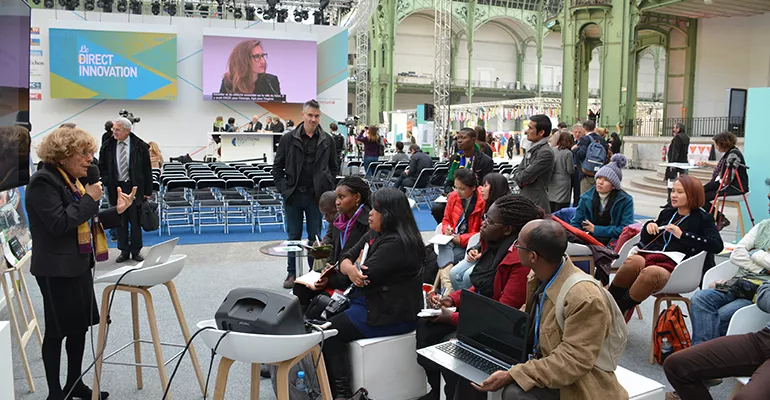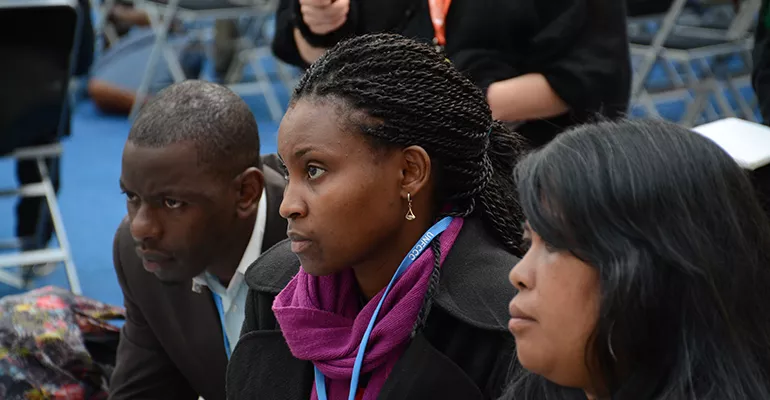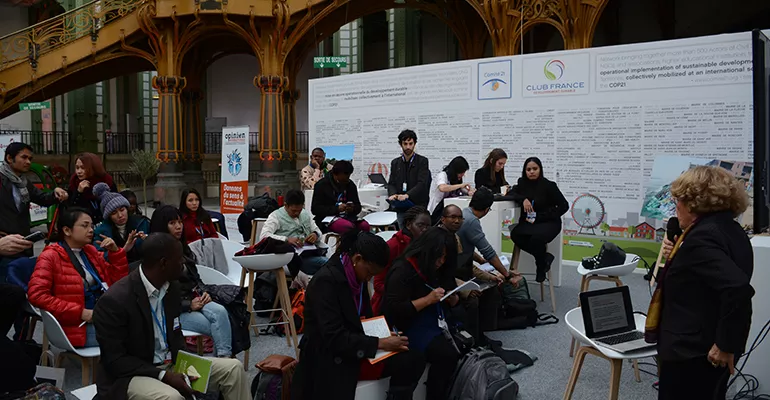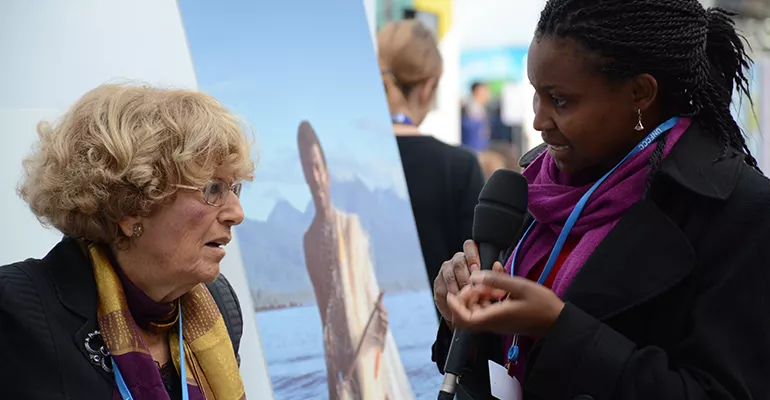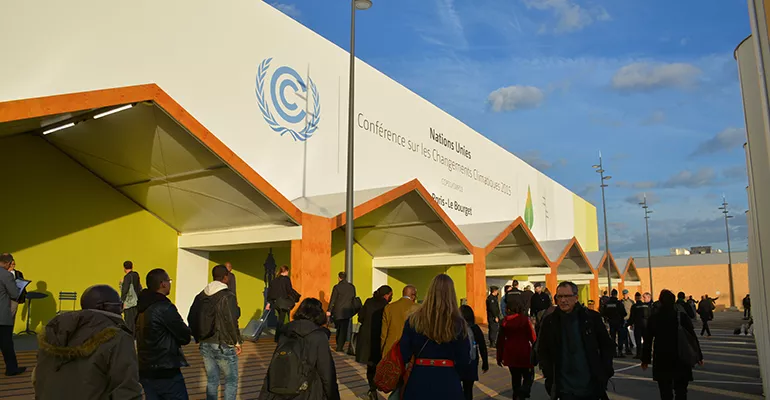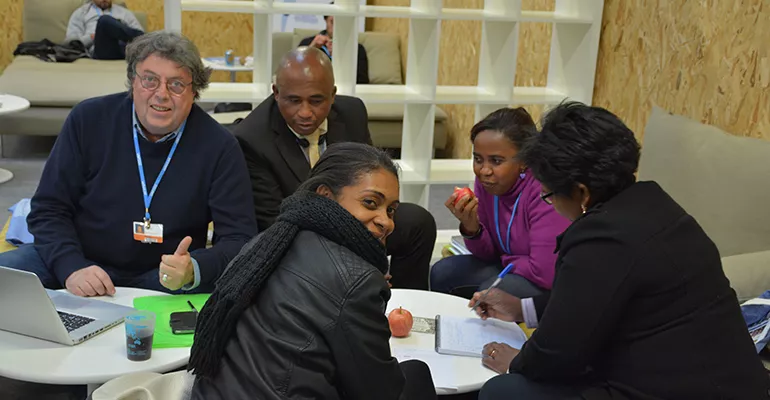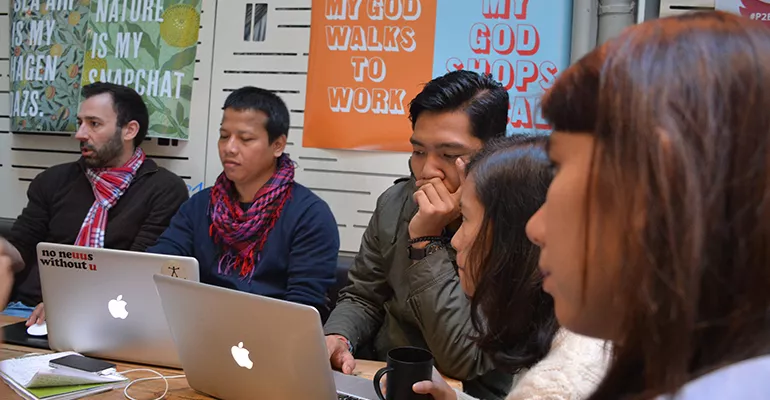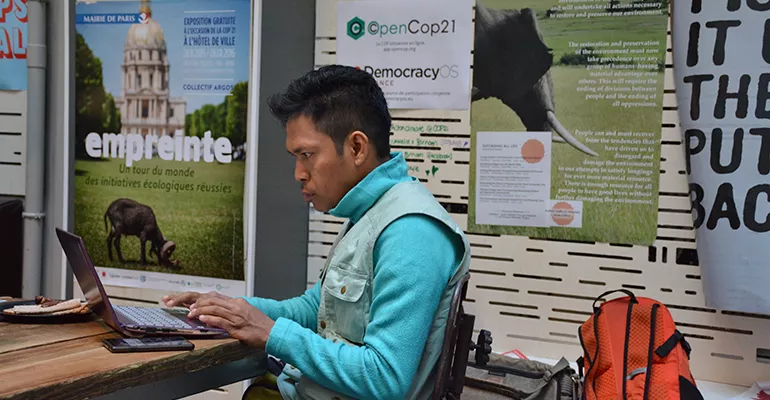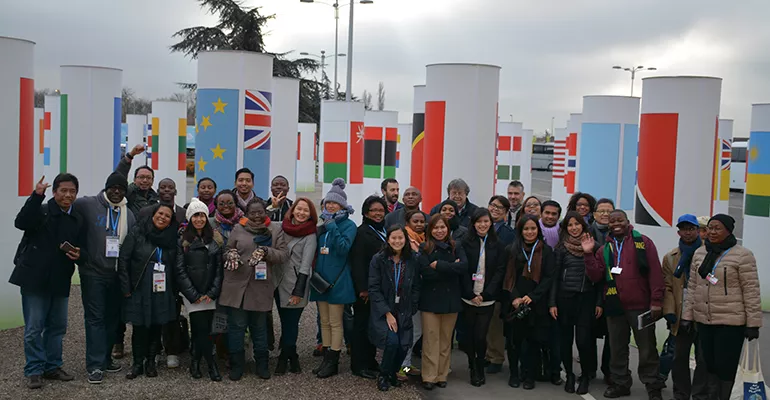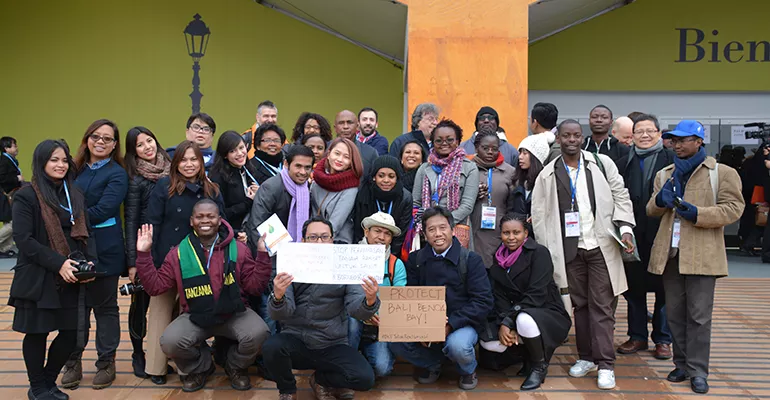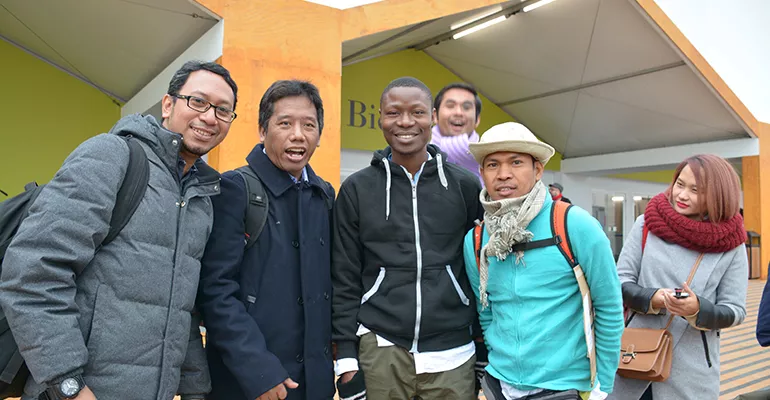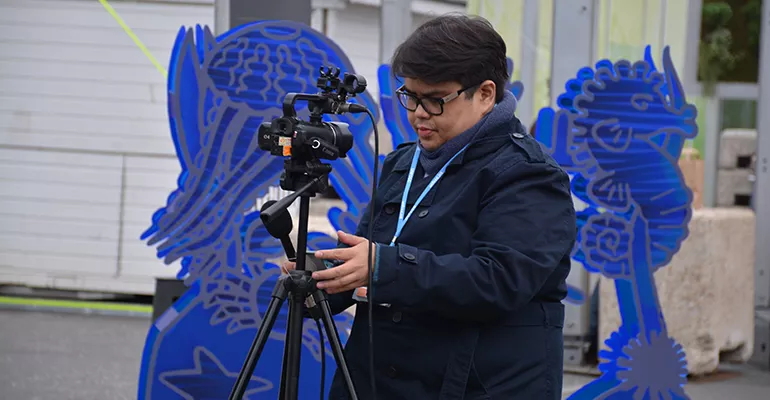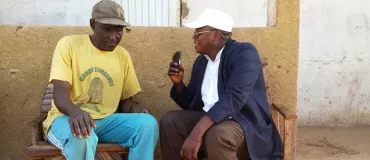Media 21, journalism and climate change
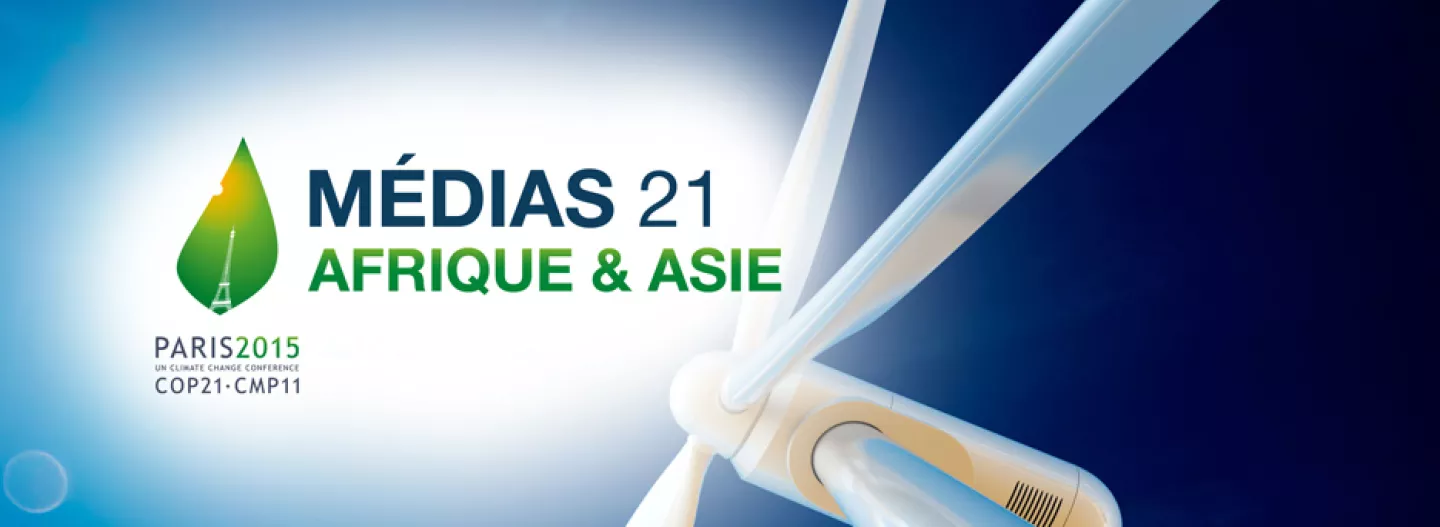
Goals
Presentation
As host to the 2015 Climate Conference in Paris, ahead of the event, France wants to instigate a positive debate, bringing people together, on the subject of the fight against global warming.
To help raise awareness of the issues posed by global warming as widely as possible, the "Media 21, Journalism and Climate Change" project is designed to inform and educate the media in East Africa, Madagascar and Southeast Asia on the challenges and implications of this international event. It aims to make climate change a topic of discussion in areas that are already suffering the effects of global warming, with a view to raising awareness among the public and, ultimately, bringing about changes in behaviour.
Through this project, the media, which have a key role in the success of the 2015 Paris Climate Conference, learn about the commitments made by the participating States, improve their knowledge of environmental issues and pass on the information in a format that can be understood by the general public.
The project also has another side: support for the media in investigative reporting on the subject of initiatives for adaptation to climate change. The reports, reflecting positive experiences implemented locally in Asia and Africa, will then be publicised alongside the 2015 Paris Conference Climate.
Project beneficiaries
- 8 web journalists and bloggers from Madagascar, Kenya and Tanzania
- 10 radio journalists from Madagascar
- 10 editors in chief from each ASEAN country
- 10 teams of investigative journalists from ASEAN
Files to download
Actions
Covering a conference in line with the expectations of the target public groups
Web and radio journalists selected following a call for applications attend an international scientific conference entitled "Our Common Future Under Climate Change" in July 2015 to learn about climate change, refining their methodology and preparing interviews and profiles.
A second session, before and during COP21, provides journalists with the tools to understand negotiations and enables them to develop their network of experts. They place the spotlight on issues specific to the African continent and provide fair and balanced coverage of the proceedings.
Journalism and climate change: the Médias 21 project award winners
Media 21 Africa: first workshop in Nairobi
Media 21: new meeting in Bangkok
Medias 21: Meeting the scientists in Paris
Enhancing investigative journalism techniques on an environmental topic
Web journalists are trained in the techniques of reporting on scientific matters.
They are then guided as they prepare an investigative report on environmental issues concerning how people are adapting to climate change. The reports are regularly published by the online media involved and on the Media 21 platform.
Developing skills in the production of news programmes relating to climate change
Two training sessions for Malagasy radio stations help journalists learn more about and take on board issues relating to climate change.
Radio stations are encouraged to take into account traditional aspects and local customs to enable them to raise awareness of climate issues more effectively and encourage people to implement strategies for coping with them.
Training local Madagascan radio stations on climate change issues
Forty journalists report live from COP21!
Establishment of a radio magazine production network
Radio stations receive financial support for the production of programmes on global warming. These programmes are pooled in a programme database which can be accessed by all stations participating in the project.
A competition at the end awards prizes for the best magazine programmes, with six journalists being selected to attend COP21.
Media 21: first online publications by Asian media
Media 21: first online publications by African journalists
COP21: 20 on-the-ground reports from Africa and South-East Asia
Educational support for environmental issues
Various training sessions are held for the editors in chief of media from the ASEAN region, on:
- Knowledge of the issues involved in climate change
- Writing about climate change: how to address the issue, what angle to take and what editorial strategy to employ
- Coverage of a scientific conference through participation at a conference in Jakarta
- Preparation of topics for investigation and articles on the issues of the 2015 Paris Climate Conference or global warming
- Coverage of the 2015 Paris Climate Conference
The role of the media in the fight against climate change debated in Laos
Training in investigative techniques in relation to environmental topics
Training broken down into three stages for the production of an investigative report on a positive local initiative in response to the effects of climate change:
- Presentation of the rules of journalistic investigation, choice of subject, angle and writing, and preparation of a timetable
- Coverage of a scientific conference to increase knowledge, and interviews with experts as part of the investigation conducted,
- Training ahead of the 2015 Paris Climate Conference in how to pitch the investigations to be presented to other media
Presentation of the results of investigations during the COP21 conference
A communication campaign carried out for the 2015 Paris Climate Conference promotes the investigations conducted as part of this project.
The participants selected present their own investigation and highlight the positive local initiatives undertaken in their region.
